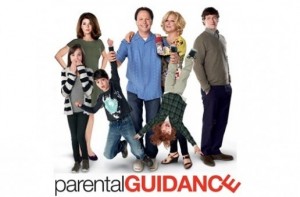Love is Strange
Posted on August 28, 2014 at 5:59 pm
Love is strange. As this movie opens, a deeply devoted couple of more than three decades wakes up and prepares for a big, important, emotional, happy occasion. They bicker a little bit, but it is clear to them and to us that these are reassuringly familiar rhythms for them, almost a contrapuntal love duet in words. Later in the film, two people who admire and care for each other deeply but are getting on one another’s nerves, converse in terms that are genuinely thoughtful and polite, and yet it is clear to us and to them that they are seconds short of wanting to throttle each other. One of them will tell his husband in a phone call, “When you live with people, you know them better than you want to.” That is, unless you share a true, romantic love. That’s what’s strange — how it is that other people’s quirks that would annoy us if we spent too much time together somehow seem endearing when it is someone you love. Love is what makes us not strange to the special people who truly understand us.

John Lithgow and Alfred Molina play Ben and George, a comfortable but far from wealthy couple who have lived happily together in New York, in a life rich with art, culture, friends, and family. Ben is an artist. George is a choir leader in a Catholic school. As the film opens, it is their wedding day. Gathered in their apartment afterward, they are toasted by their loved ones, including Ben’s niece-in-law, Kate (Marisa Tomei), a writer, who makes a beautiful speech about how seeing them together, when she was dating their nephew, showed her what a loving partnership could be.
But their marriage is too much for the bishop who oversees George’s school, and he is fired. Ben and George go into financial free-fall. They can no longer afford their apartment, and they call on their friends and family to help them while they try to find something less expensive. Everyone wants to help, but this is New York, where space is very limited, and no one can take them both. (A niece who lives in a large house in Poughkeepsie keeps offering, but no one considers that an option.) Ben goes to stay with his nephew, a harried documentary filmmaker, and his wife, Kate, and their teenage son, Joey (Charlie Tahan). He will be sleeping in Joe’s bunk bed. George will be sleeping on the sofa in the small apartment of friends, another gay couple, both cops, who have an active social life.
What “Brokeback Mountain” did to convey that movie romances between gorgeous, glamorous movie stars do not all have to be heterosexual, this film does even better for showing us that the real love story is the one that stretches over decades. Lithgow and Molina exquisitely capture the intimacy and interdependence that only those in very long-term relationships understand. They lightly touch on past disappointments, even betrayals. They tenderly support one another’s vulnerabilities.
The brilliant timing and wit of the scene where Kate is trying to get work done while Ben is cluelessly trying to be a good guest by making social chit-chat is a highlight. Tomei is outstanding, as always. Tahan is marvelously open as a good kid who understandably feels crowded to have a 70-something uncle in his bunk bed. Writer-director Ira Sachs has enough respect for his characters and his audience to allow everyone to be nice. There are no bad guys here (except for the off-screen bishop). But that just makes clear how precious those moments are when we experience the love of those to whom we are never strangers.
Parents should know that this movie is rated R for language only. There is a sad death.
Family discussion: What would you advise Ben and George to do? This movie shows small moments many movies overlook and skips the big moments many movies would include – – why?
If you like this, try: writer/director Ira Sachs’ other films, including “Married Life,” and the classic 1937 film Make Way for Tomorrow.

